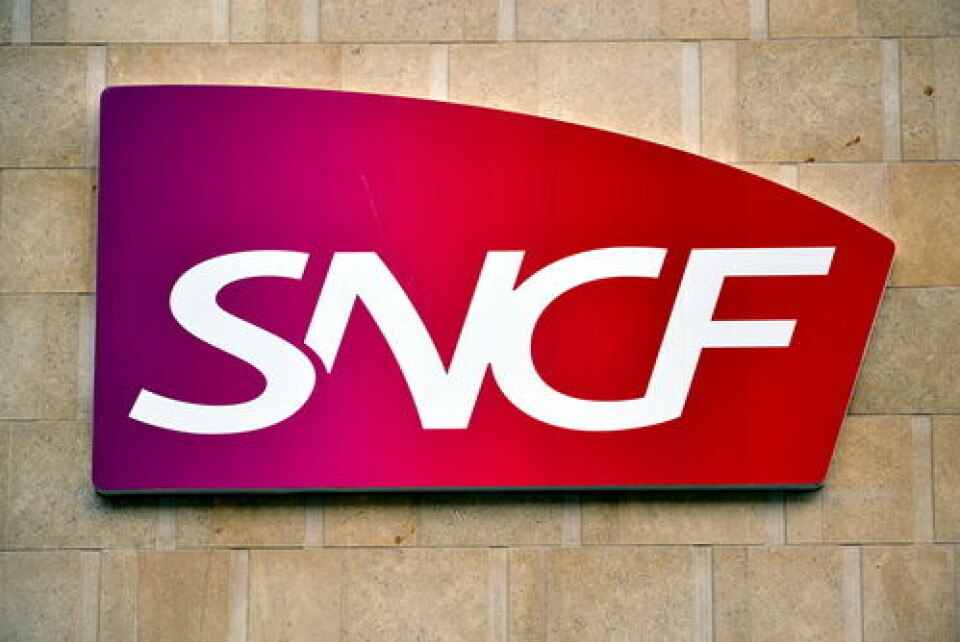-
Occitanie copper phase-out ramps up – how it will affect residents
There are some simple steps you can take to prepare for the switchoff
-
Which cars are stolen the most in France and why?
Perhaps surprisingly, the higher-end vehicles are not the most targeted
-
Several wolf sightings in centre of Frejus, Var
Rules have been relaxed around shooting wolves that threaten livestock
Super-fast and autonomous, France’s SNCF eyes trains of the future
A new project will consider if magnetic technology could increase train performance, boost capacity, and eco-friendliness, with trains that could travel up to 550km/h

French rail operator SNCF has signed an agreement to evaluate whether magnetic propulsion technology could increase train capacity and efficiency.
The deal was signed with Polish technology company Nevomo.
It is one of the projects agreed with SNCF as part of its plans to invest €100billion in the railway over the next 15 years, to enable it to develop its network across major cities in the country, and to invest in new innovation.
Nevomo’s MagRail system uses magnetic levitation technology. Its stated aims include making railways more eco-friendly, fast, efficient, and cost-effective. It enables electric vehicles (or carriages) to work in non-electrified areas, such as terminals and ports.
It could also enable trains to travel at up to 550km/h.
France's national railway company @GroupeSNCF and #Nevomo sign a cooperation agreement in Paris to explore possibilities to increase the efficiency and capacity of the French rail network with #MagRail!https://t.co/X0YDcgDDNX@railwaygazette @EURail_JU @EUeic @InnoEnergyEU pic.twitter.com/SD79TjvzdQ
— Nevomo (@NEVOMO_tech) March 10, 2023
Nevomo explained: “The MagRail system can be integrated into existing rail systems. As a result, the traditional rail transportation system can gain better freight dynamics, higher loading limits, greater flexibility, and the ability to run trains automatically without the need to build new lines.”
The project will look at three areas:
-
Boosting the capacity on congested urban passenger lines
-
Increasing the performance of current freight trains for higher loading limits and more
-
Evaluating MagRail as an alternative propulsion system for rural lines, in combination with lightweight carriages.
The tests are set to be done by 2025.
Luc Laroche, innovation director at SNCF, said: “We have noticed the high technicality of Nevomo and consider that the suggested technologies are likely to advance the railway.”
David De Almeida, director for research at SNCF, said that the agreement was part of “collaborative actions” the company carries out to “allow us to identify emerging technologies to explore for the railways of the future”.
Przemek Ben Paczek, CEO and co-founder of Nevomo, said “We are very proud to become the partner of SNCF, the innovation leader of European railways. We are very excited to collaborate and evaluate the chosen applications to support SNCF’s goals.”
Nevomo is one of the start-up companies that has been working on the Hyperloop project. Hyperloop is a proposed plan to create a 100%-autonomous, levitating train that could travel up to 1,000km/h, and connect Paris and Marseille in just 30 minutes, or Paris and Amsterdam in just 90 minutes.
Yet, so far Hyperloop would require new train infrastructure to be installed, and its price is still largely deemed to be prohibitive.
Read more: Will the super-fast ‘Hyperloop’ train ever happen?
During a presentation with Nevomo about Hyperloop, SNCF manager Fabien Letourneaux said: “We are entering into the third revolution of rail; after electrification in the 1920s, and the high-speed of the 1980s, SNCF is now getting involved in the arrival of the autonomous train.”
Related articles
40 years of TGV: the train that changed the face of French rail travel
See France’s superslick and eco-friendly TGV of the future
First images of revolutionary ‘TGV of the future’ revealed in France
























